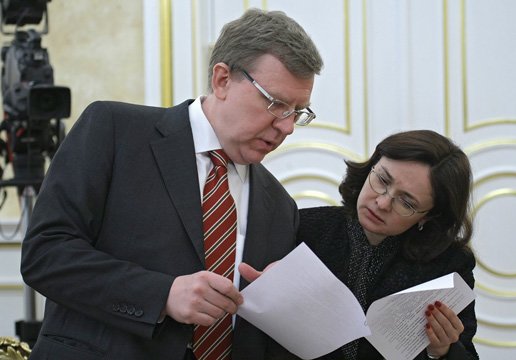To reform or not to reform?
Russia may see a massive budget manoeuvre after the upcoming election
Proposals for massive budgetary reforms have been discussed in Russia's highest political circles since 2011, but the ideas were postponed because the suggested unpopular measures entailed multiple risks. However, the budget manoeuvre is likely to be implemented after next month's presidential elections.
The Russian government is considering a major budgetary move following the presidential election in March 2018, believes Global Risk Insights. A long-term economic plan suggested in 2011 by a group of Russian and foreign academics has a number of high-profile supporters, such as Chairwoman of Central Bank of Russia Elvira Nabiullina and ex-Minister of Finance Alexey Kudrin. The latter, who is considered to be one of the most prominent and influential independent experts in economics, published a report last year warning that any further delay of the budget reform would result in long-term stagnation of the local economy.
According to President Putin's press secretary Dmitry Peskov, no final decision on the possible budget refocus has been made yet. However, other officials including Minister of Finance Anton Siluanov hinted that this time the Kremlin was determined to proceed with the manoeuvre, although it was still not entirely clear how it would be implemented and what it would consist of. The initially proposed plan called Strategy 2020 proposed significant cuts of defence expenses, a pension system reform and an increased investment in human capital and infrastructural development in order to offset demographic decline and capital depreciation.

Siluanov proposed to fund the manoeuvre by improving the efficiency of the corporate tax collection system. But in case that this is not enough, the reform may require some unpopular measures like an increase of the income tax burden on working Russians. Several governmental agencies have already proposed to increase it to 15-17% instead of current 13%, which is relatively low compared to other countries with large social security systems. The government is also considering an opportunity to reduce the expenses on the state pension system by raising the retirement age. Last December, President Putin admitted during his annual press conference that the retirement age increase was almost unavoidable but promised to execute it mildly.
The funds could also come from the reduction of other expenses, particularly those on defence, although it is less likely given the ongoing reform of the Russian military sector and its role in President Putin's general platform. Besides, Alexey Kudrin proposed to review a fiscal rule managing revenues from the natural resource trade. According to the current rule, the surplus received from oil prices higher than $40 per barrel goes not to the spending part of the Russian budget but to reserve funds. Kudrin urges to allow reinvestment of these oil revenues. However, the proposal is not very popular among the Russian government, as the Kremlin is determined to use the recent oil price surge to restore its safety cushion.